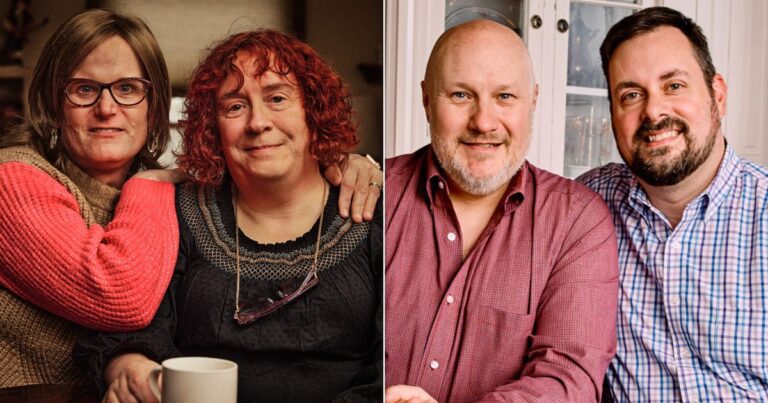For decades, major cities like New York and San Francisco have been seen as safe and supportive environments for the LGBTQ+ community. A new documentary, however, is set to take an in-depth look at the queer people who chose to live outside these urban bubbles, and the challenges they faced in doing so.
On Thursday, Hulu unveiled an emotional trailer for “We live here: The Midwest.” Directed by Melinda Maerker, the film is billed as “an authentic portrait of courageous families in America's heartland” and is set for release on December 6.
Among those featured in “We Live Here: The Midwest” are a trans/queer family with five children in Iowa who have been kicked out of their church, a gay black couple and their young daughter in Nebraska, and a lesbian couple living in farm in Kansas, where they chose to homeschool their son after he was bullied.
Watch a trailer for “We Live Here: The Midwest” below.
“Students think non-binary people don't exist,” says one of the film's young subjects in the trailer. “I'm here right now, so are we I am doing exists.”
“We're changing what defines a nuclear family,” adds another subject.
The Minnesota state representative also appears in the film. Heather Keelerwhich addresses the death threats she says she has faced as an Indigenous queer woman in politics.
Speaking to People In an interview published Thursday, Maerker said she wanted to shine a light on the Midwest because it's “really the heart of family values.”
Producer David Miller, who is married to “Glee” and “American Horror Story” creator Ryan Murphy, echoed Maerker while stressing the importance of showing how queer families live.
“I was obviously very happy that same-sex marriage went through the Supreme Court [in 2015]Miller told People. But 2016 – the year of Donald Trump's victory in the US presidential election – was a stark reminder of the anti-LGBTQ+ sentiment that still prevails in much of the country, he said.
The release of “We Live Here: The Midwest” is optimistically timed, given the rise of anti-LGBTQ+ legislation in many conservative states.
However, as one of the film's subjects explains in the trailer, even those who live in more acceptable places shouldn't take their safety for granted: “It feels like anytime, anywhere, it could change.”

